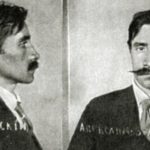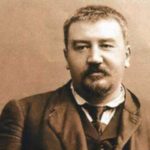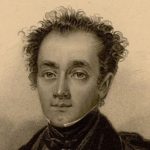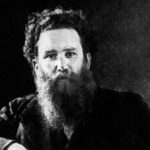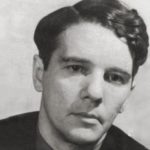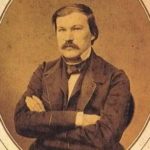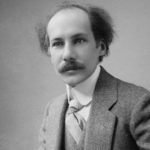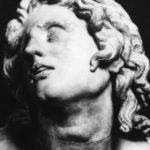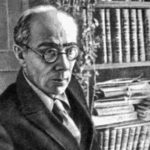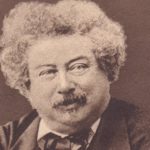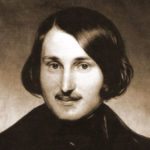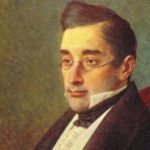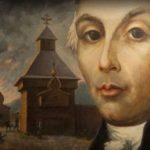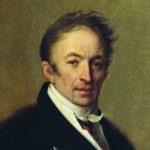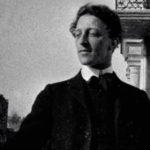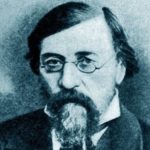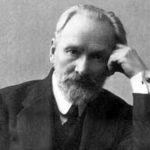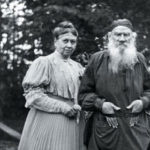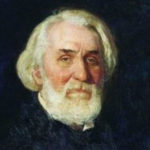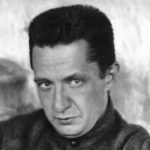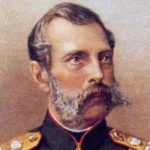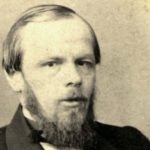Facts from the life of Alexander Herzen
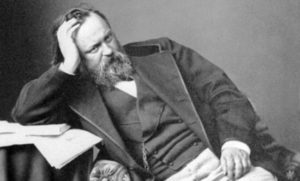 The writer Alexander Herzen was a true master of the pen. He became famous mainly because of his work as a publicist. For most of his life, Herzen held revolutionary views, and therefore criticized the existing state system, always, however, arguing his statements. History remembered him as a great writer and just an intelligent person.
The writer Alexander Herzen was a true master of the pen. He became famous mainly because of his work as a publicist. For most of his life, Herzen held revolutionary views, and therefore criticized the existing state system, always, however, arguing his statements. History remembered him as a great writer and just an intelligent person.
He had a common ancestor with the ruling dynasty of the Romanovs – the boyar Andrei Kobyl.
Alexander Herzen’s mother, a German from Stuttgart, gave birth to him, not married when she was 16 years old. He could not inherit the last name of his father, landowner Ivan Yakovlev, so his father came up with a surname meaning “son of the heart” in translation.
In childhood, the future writer was brought up at home, like all noble children of that time.
For 10 years, Alexander Herzen, in addition to Russian, fluent in German and French.
The formation of his personality and views was greatly influenced by the poems of Pushkin, whose workbooks were brought to him by a mentor.
Some of Herzen’s publications in the journal Telescope were signed by his pseudonym Iskander.
He had 7 (according to other sources – 8) brothers and sisters in the line of his father. All of them were his illegitimate children from different women.
While studying at Moscow University, Alexander Herzen imbued with revolutionary ideas and became an active member of the student circle, all of whose members shared his opinion on political issues.
According to his own recollections, the first thoughts of a revolution came to him at the age of 13, when he learned about the Decembrist uprising.
The writer was married twice, and both his wives had the same name – Natalia.
Herzen’s daughter Lisa committed suicide because of unhappy love. This event is described by Dostoevsky in his essay “Two suicides”.
His first publication took place when he was 24 years old.
For participation in the revolutionary circle, Alexander Herzen was arrested and exiled first to Perm and then to Vyatka.
Shortly after the expiration of the term of exile, after 6 years, he barely managed to return to St. Petersburg, as he was again sent to the provinces. This time the reason was the sharp condemnation of the police in one of the letters of the writer. The second link, this time in Novgorod, lasted 2 years.
Herzen took an active part in the meetings of the Belinsky circle, and for this purpose even traveled regularly from Moscow to Petersburg.
After the death of his father, who arranged him for public service, the writer moved from Russia, first to France, and then to Switzerland. Later he moved to the Sardinian kingdom, to Nice.
The French Revolution and the events following it forever reshaped the views of Herzen. He was shocked by what he saw, and the revolutionary aspirations in him were replaced by philosophical ones.
By the decree of Emperor Nicholas I, all the property of the writer and his deceased parents by that time, remaining in Russia, was arrested in 1849.
Works prohibited by Russian censorship, Herzen printed in the London printing house, specially moving there to live for this purpose.
The Alexander Herzen House-Museum is located in Moscow in the building where he lived for 4 years.
